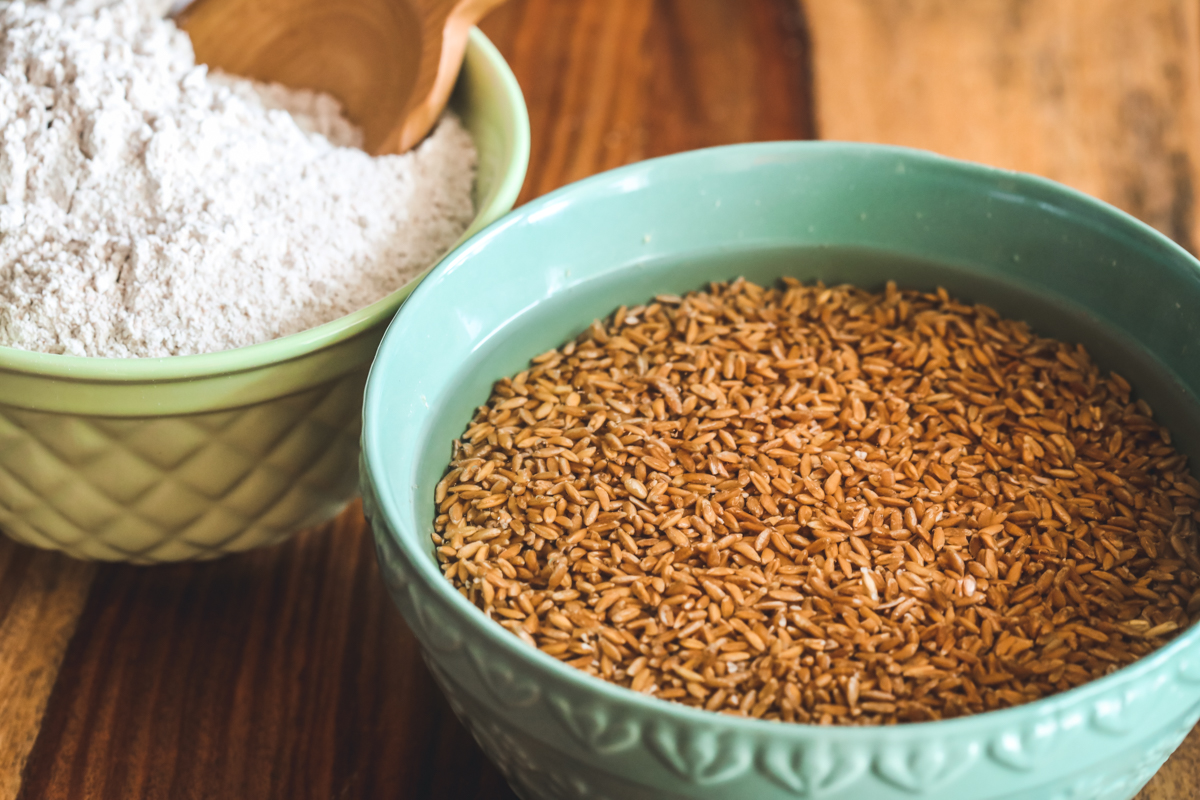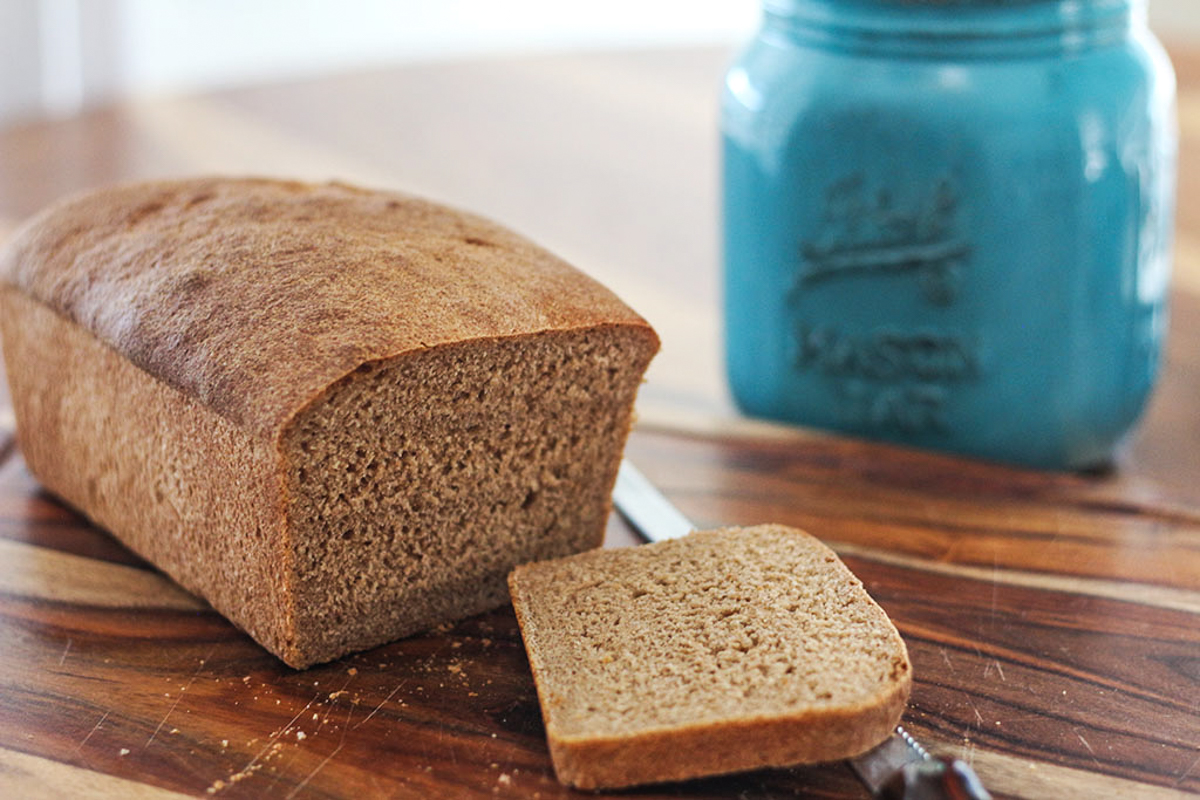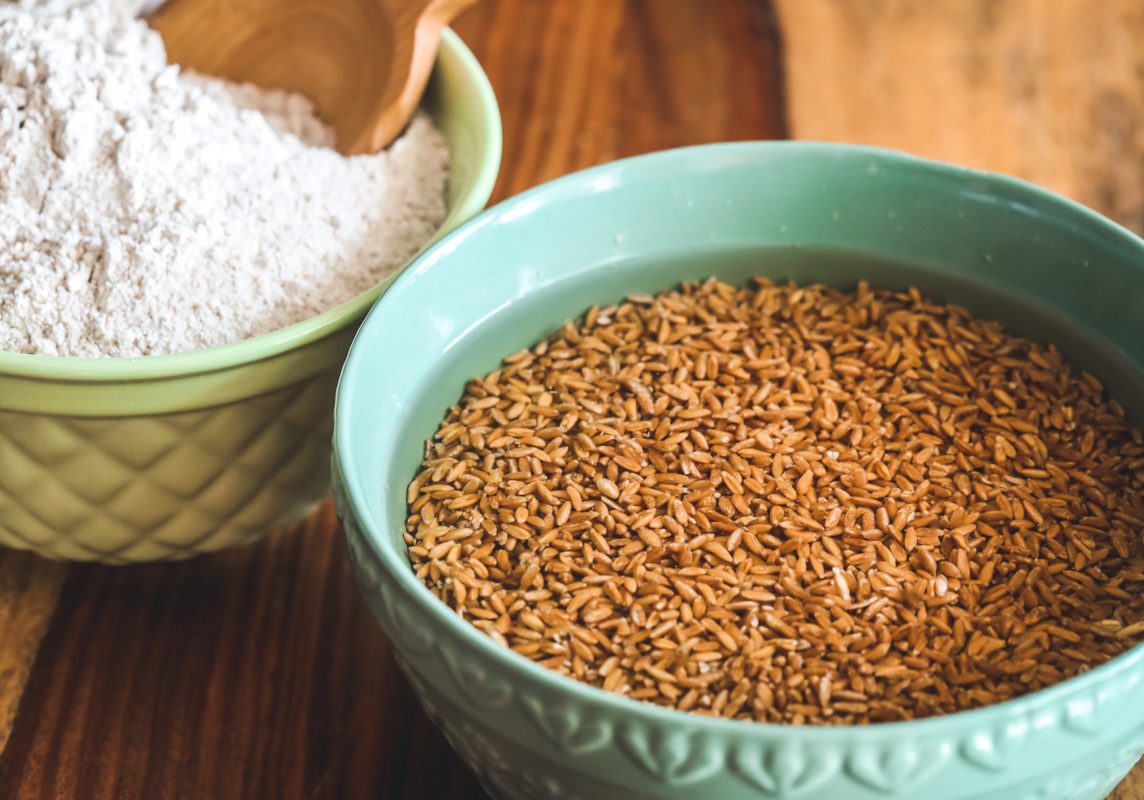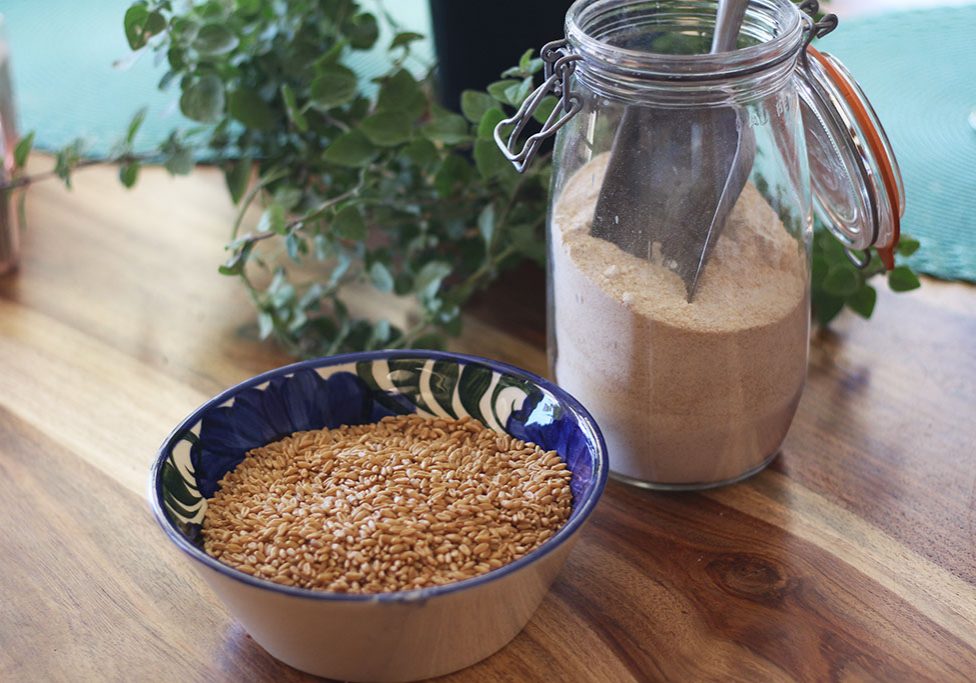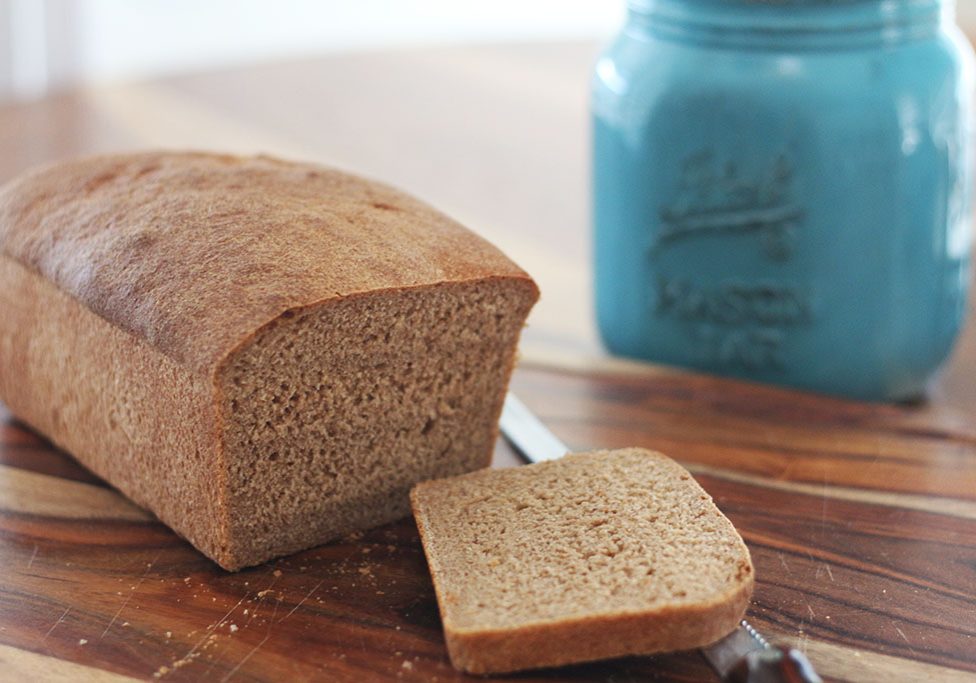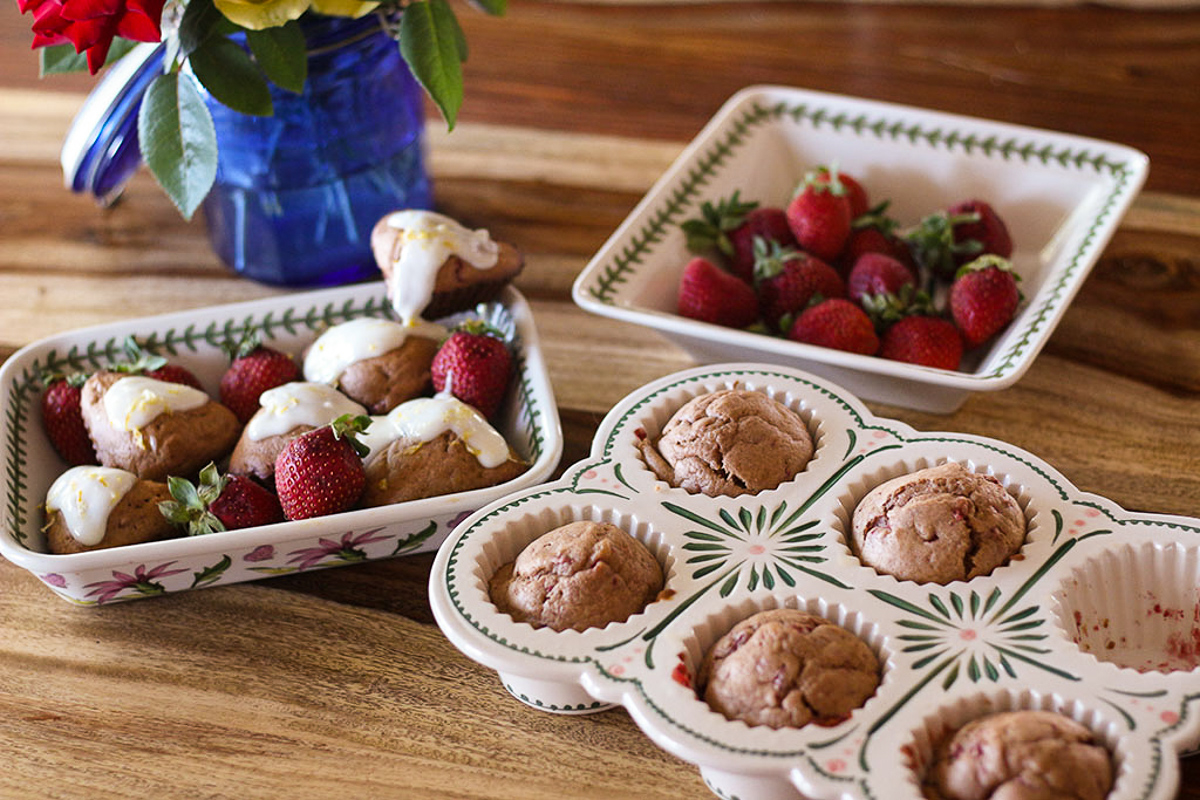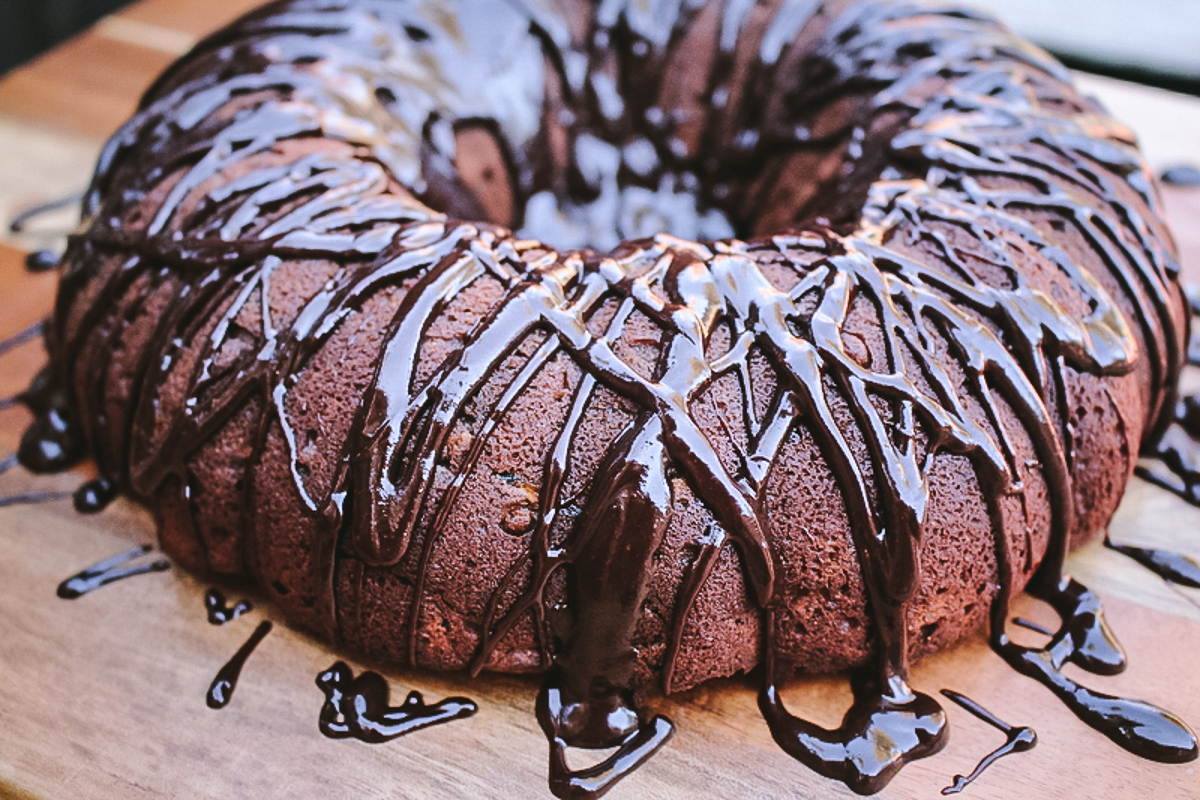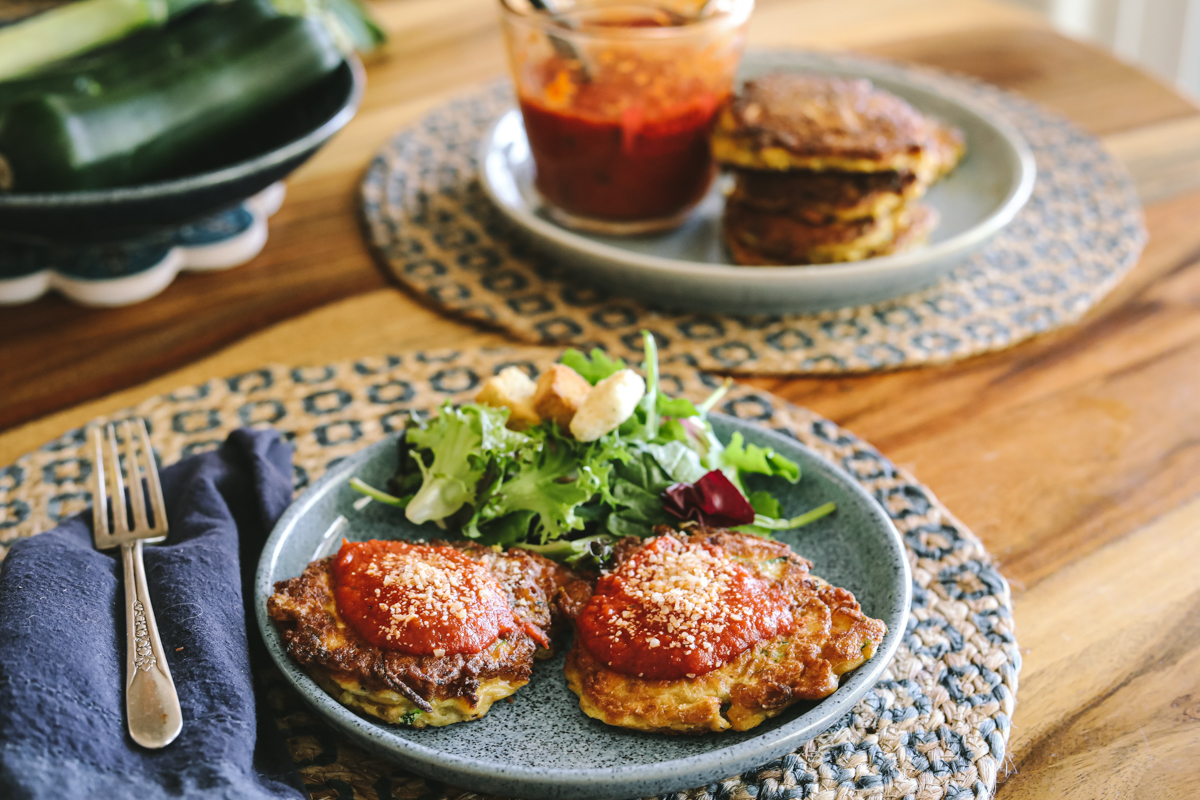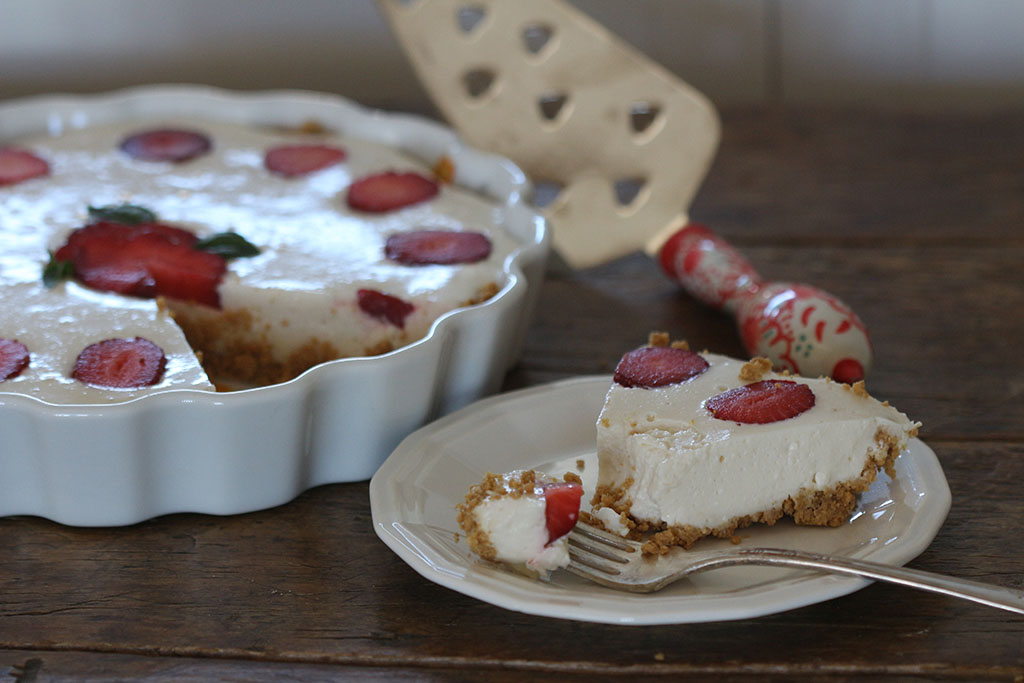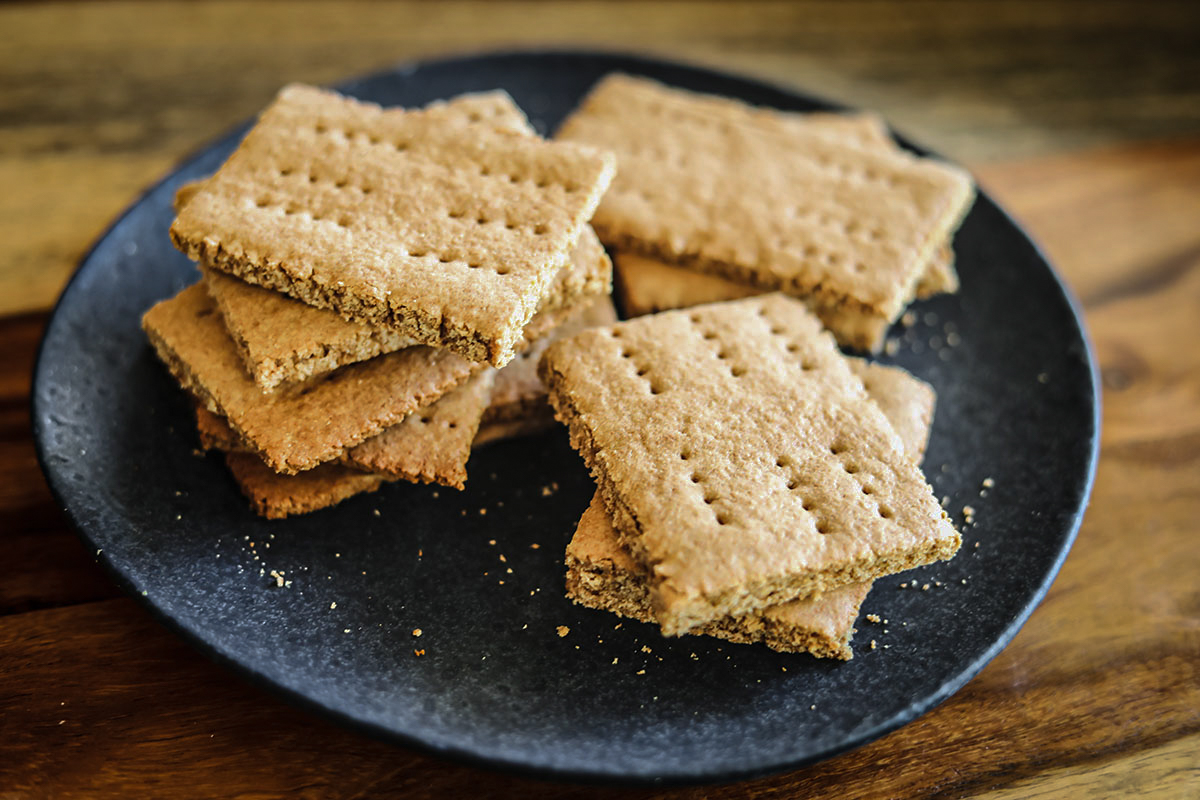
Why Sprouted Flour is Better Than Regular Flour
Why You Should Eat Sprouted Grains
Sprouted flour is made by intentionally soaking and germinating grains and then drying them at specific temperatures and milling them into flour.
While I mostly make bread from my sourdough culture (this also unlocks the nutrients), I make almost all my cookies, muffins, and desserts from sprouted flour. I've done this for two decades. I used to make my own sprouted flour, which took more work, but times have changed and now you can buy sprouted flour at health food stores and many regular grocery stores carry it too. It's a comfort to me that my family is getting all the nutrients from the sprouted grain instead of using regular flours that have their minerals and vitamins locked up in the grain by phytic acid and enzyme inhibitors that can also wreak havoc on your gut.
One of the many reasons that I started using sprouted grains and making sourdough bread was because of my daughter Maci. She had terrible intestinal pain every time she ate. She had terrible gas and bloating and was pretty miserable. We had gone to doctors and they were not able to help. So I started to do research on my own and found a wealth of information. This is the result: Maci has been pain free for years. No pain, gas, or bloating and she is completely healed. One of the things that helped her tremendously was sprouted grains and sourdough bread.
Gluten Pain
Sprouting grains can also reduce gluten and make the grain more digestible. Gluten is one of the proteins in grain. It is impossible to completely remove gluten from grain, but sprouting grain can reduce gluten. Many customers with starch- or gluten-intolerance have reported they are able to digest sprouted flours and sourdough products including my daughter.
Check out my article on my daughter's journey with gluten intolerance.
Low Glycemic and Diabetic Friendly
I have found that most people’s bodies struggle to digest grains. Yet these same bodies flourish with grains that have been sprouted or are made with a sourdough culture. They are both considered low glycemic which is a wonderful benefit. The pancreas needs huge amounts of B vitamins to deal with stress. Once a grain has been sprouted, most bodies recognize it as a vegetable rather than a starch which requires digestive enzymes not pancreatic enzymes. 1 Therefore, eating sprouted grains does not stress the pancreas. In 2008, the USDA Food Safety and Inspection Service (FSIS) ruled that sprouted grains are more akin to vegetables than to whole grain.
Diabetic Friendly
Properly sprouted flour is "diabetic-friendly" since it digests differently than unsprouted grains. It doesn't require as much work from the pancreas, which for most patients with diabetes, can be already stressed. It's important to note that everybody is different and therefore it is important to test for your reaction to sprouted bread by monitoring your blood sugar as you eat it.
removing Enzyme inhibitors
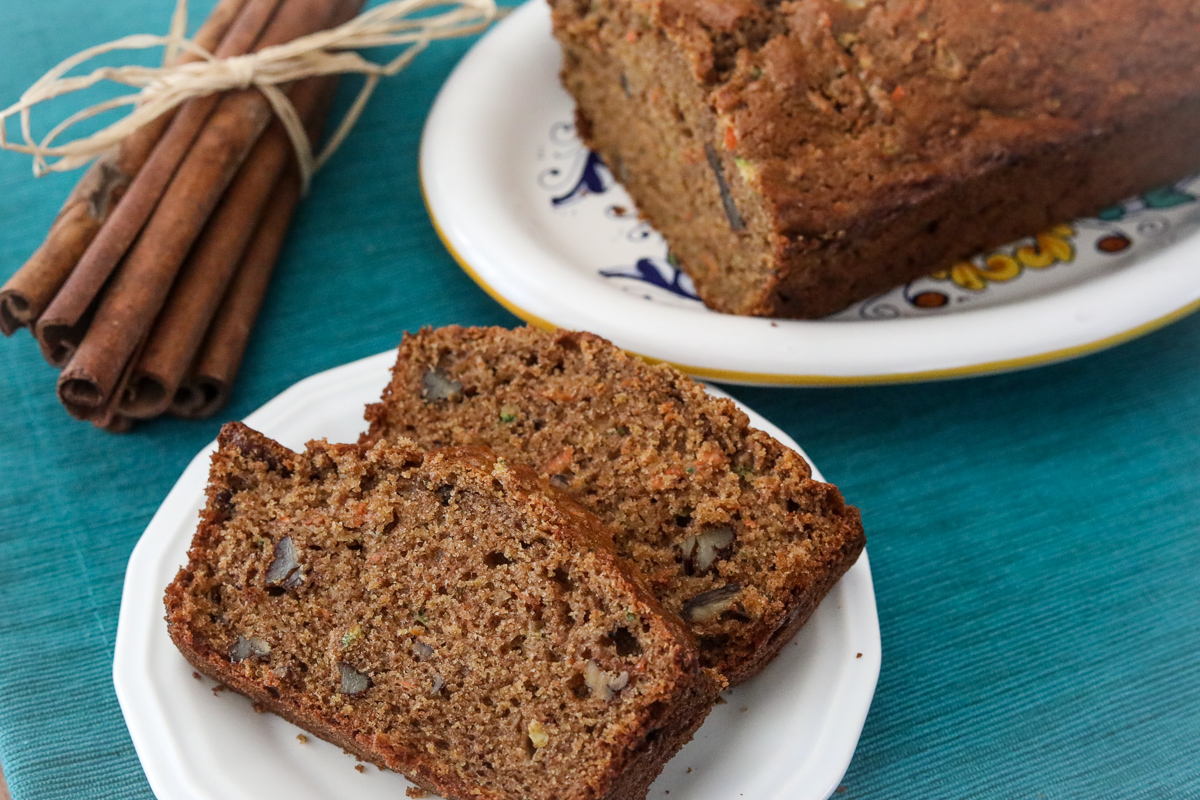
In addition, the sprouting process produces changes in the composition of the grain in numerous ways that make it a more beneficial food. This process produces vitamin C and increases the content of vitamins B, B2, B5 and B6. Carotene, which is converted to vitamin A, increases dramatically – sometimes as much as eight-fold. Sprouting also inactivates aflatoxins, which are toxins produced by fungus and are potent carcinogens found in grains.
Sourdough Versus Sprouted

Sourdough Deactivates Enzyme Inhibitors Too
When you use a sourdough starter to make bread it deactivates the inhibitors and increases the bioavailability of nutrients. This is similar to what sprouting your grain does, only this is through starter cultures that are loaded with good bacteria and yeasts. Sourdough also imparts a delicious sour flavor like nothing else.
Don't Use Sprouted Flour To Make Sourdough Bread
Don’t use sprouted flour to make sourdough bread. The bread has already been broken down by the process of sprouting and the sourdough culture won’t have what it needs to transform the bread. Since both processes are similar in their ability to transform the bread, it’s important to use regular flour to allow the sourdough culture to have the nutrients it needs to make you delicious bread.
Sprouted Flour For Baked Goods

Sprouted Recipes!
Listen To My Podcast
I have found that most people’s bodies struggle to digest grains. Yet these same bodies flourish with grains that have been sprouted or are made with a sourdough culture. Check out today's podcast to learn how to make delicious baked goods with sprouted flour.
References I talked about:
- Sprouted Flour Recipes 2020 eBook
- Gluten Pain: The Best Teacher
- Recipe: Overnight Sourdough Bread
- Purchase Sprouted Flour
- Recipe: Sprouted Flour
- Recipe: Donna’s Sprouted Bread
- Recipe: Chocolate Kefir Zucchini Cake
- Recipe: Zucchini Pancakes
- Recipe: Strawberry Lemon Kefir Pie
- Recipe: Sprouted Graham Crackers
- Recipe: Sprouted Strawberry Scones with Lemon Kefir Topping
- Frequently Asked Questions About Sprouted Grains
References:
- J. Quinn, Essential Eating (Waverly, PA: Azure Moon Publishing, 2003): 33.
- S. Fallon, Nourishing Traditions (Washington, D.C.: New Trends Publishing, 1999): 112.
Are you on the list?
Sign up today and I'll send you my free Getting Started Guide!
Each week I'll send you updates, tips, recipes, and more! You might even be a winner of my weekly giveaway! (starter cultures, memberships, and more!)
Come be a part of my cultured food family!

